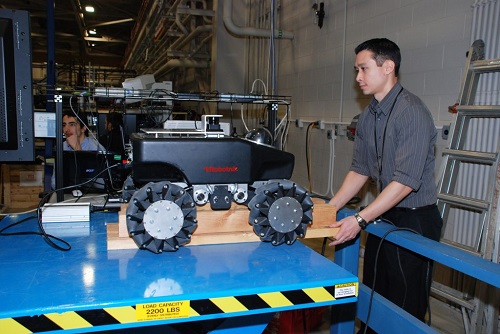
Key Information:
- Best majors for the future includes various majors like Computer Science and Biomedical Engineering, noting their potential for high future earnings.
- These degrees are chosen for their promising job opportunities and expected demand in future job markets.
- Emphasis is placed on degrees that lead to careers with high mid-career salaries.
- Students are encouraged to consider how their chosen major will affect their salary and job prospects in the long term.
Which bachelor’s degrees will equip students to step into the highest-paying jobs? Choose from the best degrees and you can make bank right out of college — and well into the future — with one of these lucrative careers!
This article was originally published in July 2023 and was last updated in March 2024.
There are many factors that a prospective undergraduate student takes into consideration when contemplating which bachelor’s degree to pursue. Arguably one of the most important should be the way in which their major will improve their salary and job prospects in the future.
Fortunately, there are various different college programs available that are not only enlightening and rewarding but will help set budding learners up for exceptional careers in later life.
This list article showcases the 30 types of bachelor’s degree courses that will most benefit students after graduation on the job market. Specifically, the best college majors for the future should equip learners to go into roles with often excellent annual salaries.
At the same time, enables them to enter fields where their knowledge ensures exceptional job prospects in the years to come.
Related Rankings:
- Top 15 Undergrad Business Degrees
- 10 Highest-Paying Engineering Bachelor’s
- 25 Best Paying Careers for Bachelor’s Degree Grads
- Top 10 Bachelor of Engineering Degrees
- 11 Best Online Actuary Degree
Methodology: Highest Paying Bachelor’s Degrees for the Future
To develop this list article, we first studied other lists from respected publications. These articles identified, in the first instance, the bachelor’s degrees with the best future salary potential. In the second, the projected best jobs for the future.
In order to single out our entries, we first identified the bachelor’s degrees with the best future salary potential by using the rankings from PayScale, Glassdoor, and Georgetown University. These three lists were then collated into one by awarding each degree cited a weighted score. This scoring took into account both the total number of entries on each list and where each degree ranks on those lists. These weighted scores were subsequently combined to give the Degree Ranking for each degree.
In the same way, we then identified the best jobs for the future. Using data from World Economic Forum, Business Insider, Kiplinger and Mic, we collated the four lists into one to generate an individual Future Job Score for each job.
Again, the scores were weighted to take into account the total number of entries on each list and where each job ranked on those lists. These weighted scores for each job were then matched with the degrees that qualify individuals to perform these roles. This gave us an overall Future Job Score for each degree.
Finally, we calculated the Overall Score for college degrees by adding the relevant Degree Ranking to its corresponding overall Future Job Score.
Here’s an example:
For example, Computer Science ranked third in the Degree Ranking, earning it 97 points. To that figure, the Future Job Scores for the jobs app developer (41), computer systems analyst (37), computer and information systems manager (26) and software systems developer (21) were added – so 97 + 41 + 37 + 26 + 21 = 222. The Overall Score for a Computer Science degree was, then, 222.
It was on these Overall Scores that the degrees were ultimately ranked the best college majors for the future.
1. Computer Science

These days, virtually every company on the planet relies heavily on computers to keep their organizations running, and this is something that’s unlikely to change any time soon. Hence, firms of all sizes – from small regional businesses to household-name brands – invariably need computer specialists who can swoop in to fix any tech problems or swiftly build user-friendly websites to clients’ specifications.
It’s no wonder, then, that computer science courses are some of the most popular of their kind in U.S. colleges today. Typically, computer science majors not only learn how computer hardware works but also how to find their way around coding language programs like Java and C++ – as well as more complicated languages such as Prolog and Scheme.
The skills learned from a computer studies bachelor’s degree open up the job market considerably to graduates in the field, with roles from computer systems analyst to web developer all within reach for those with the required know-how.
Such positions are usually well paid, too: according to 2022 statistics from the BLS, the typical software developer earns an impressive median salary of $124,200. Perhaps even more promisingly, the BLS has estimated that the need for people in these roles will only increase in the U.S. in the coming years.
2. Computer Science and Engineering

While computer science degree courses may provide a valuable overview of the field, other related programs offer more specialized insight and teaching for those looking to develop their skills in certain areas of tech.
In particular, a computer science and engineering bachelor’s could be the ideal choice for anyone who wishes to learn both the basics of how computers work and how to develop and build their own hardware or software – handy skills in an age where we rely so heavily on technology.
That knowledge, moreover, allows graduates to earn positions virtually anywhere where systems- and program-building are needed – from developing the vital traffic-control technological infrastructure to crafting the software required for the smart homes of the future.
And though earnings potential naturally depends on how much an employer is willing to give, PayScale’s 2022–2032 College Salary Report states that computer science and engineering bachelor’s graduates can each typically expect a median salary amounting to $75,097 a year.
3. Information Technology

While computer science and information technology – or IT for short – may seem like similar fields, there are actually marked differences between the two. For example, whereas computer science’s focus is often programming, those in IT typically focus more on the management and installation of computer systems or the development of technological networks.
Undergraduates majoring in IT will, then, usually be sharpening their skills in the design, implementation, and maintenance of such systems as well as perhaps learning about crucial related areas like information security.
As a result of this knowledge, moreover, graduates may be able to find work as network architects, support specialists, or even research scientists – and according to the U.S. Bureau of Labor Statistics, those in the former occupation earned a median salary of $126,900 in 2022.
In addition, the bureau has stated that the number of computer-related and IT positions in the U.S. is set to rise by 4 percent in the years from 2022 to 2032.
4. Computer Science and Mathematics

As its name implies, a computer science and mathematics undergraduate degree caters to those who have interests in computer technology and the mathematical equations on which that technology is often based. In general, a computer science and mathematics major examines the ways in which both spheres intersect – through the math involved in creating a successful algorithm, say.
Consequently, while working towards such a bachelor’s degree, students can learn valuable and transferable skills such as problem-solving and critical thinking – skills that should boost their employability in a number of roles both now and in the future.
That said, what students have gleaned during their time in college naturally makes them particularly suitable for occupations with a tech or math focus, whether that’s through programming or working as a statistician. At any rate, computer science and mathematics graduates are generally very handsomely paid after they’ve entered employment.
For instance, PayScale’s 2022–2032 College Salary Report has calculated that grads who majored in those fields will typically each earn a $189,400 a year median salary.
5. Electrical Engineering

It probably isn’t an overstatement to say that without electricity, life as we know it would grind to a halt. The massive power grids that deliver that electricity to our homes, businesses, and institutions are typically maintained by those with electrical engineering expertise.
Indeed, with an electrical engineering degree under their belt, a graduate may be fully equipped to assemble and manage power generators and come up with the most effective ways to transport the electricity these create to where it’s needed.
Former students in the field aren’t, however, limited to working on projects such as these, since their degree is likely to equip them with the technical ability to improve our telecommunications systems, domestic appliances and computer hardware, too.
Bringing such expertise to the fore, then, electrical engineers are generally paid well during the midpoints of their careers: according to PayScale’s 2022–2032 College Salary Report, during that time those with bachelor’s degrees in the subject each typically achieve earnings of a considerable $91,844 per year.
6. Economics

Economics, in short, analyzes the financial workings of businesses and governmental organizations – in particular, through the apportioning of the services and products they provide. Accordingly, studying for a bachelor’s degree in economics should give learners crucial insights into how money is managed domestically and internationally, whether that’s through investigating how families deal with their earnings or the ramifications of the collapse of a whole nation’s economy.
When it comes to future employment, meanwhile, graduates in the field are obviously well suited to careers in areas like financial consultancy and risk analysis that demand expert knowledge of economic models and plans. And the roles that former students go on to take up are often very lucrative themselves.
For example, PayScale states that those with bachelor’s degrees in economics can typically expect a median salary of $50,000.
7. Computer Engineering

Primarily, computer engineers are involved in developing the technology necessary to make electronic systems work. As such, computer engineering majors will typically be taught how to create and implement the likes of processors, circuit boards, and any other mechanical parts integral to computers’ functions. In addition, they may be required to be able to design and successfully utilize computer programs.
But whether computer engineering bachelor’s graduates choose to later search for roles in hardware or software development, their knowledge could well offer them a certain amount of career security in the future. Undoubtedly, the U.S. Bureau of Labor Statistics has projected that demand for hardware engineers will grow by 5 percent.
Meanwhile, both hardware and software engineers are well remunerated: PayScale states that the median annual salary in the U.S. for positions in the field is $100,530.
8. Management Information Systems

According to The University of Arizona, all students need for its management information systems (MIS) program is “an interest in technology and the desire to use technology to improve people’s lives.” And as that statement suggests, MIS is a considerably more interpersonal discipline than either IT or computer science.
As a result, students majoring in that area will likely look at information networks and databases with an eye to how they most usefully serve businesses and their customers and realize how technological progress can benefit people as well as the industry.
Plus, prospects for MIS graduates look great. As the U.S. Bureau of Labor Statistics has projected, the number of roles for those in IT and computer-related fields is estimated to increase by 5 percent by 2032.
Meanwhile, business analyst roles – for which MIS grads are well equipped – offer significant salaries: on average, $84,502 annually, according to employment website Indeed.
9. Electrical and Computer Engineering

Technological progress has transformed our world within the past few decades, and that progress is not likely to slow down. For this reason, the career prospects of those with degrees in electrical and computer engineering (ECE) look bright, since the skills they ought to have acquired during their time in education should make them exceptionally capable of developing the tech of the future.
Their experience and know-how are valuable in many different arenas, too. In the healthcare sector, for example, ECE graduates can contribute to advances in medical equipment, while in the field of renewable energy, they may develop environmentally friendly power systems that help save the planet.
Furthermore, there’s good news for ECE majors when it comes to financial rewards, as PayScale’s 2022–2032 College Salary Report calculates that those with bachelor’s degrees in the discipline can typically each anticipate substantial mid-career earnings of $75,097 a year.
10. Finance

When flipping through college brochures, prospective students may come across the word “FAME.” This isn’t, however, a major in how to become a celebrity; rather, it’s an acronym for the intertwined subjects “Finance, Accounting, Management and Economics.”
Still, while those studying for a bachelor’s degree in finance may not eventually become household names, they can still command enviable salaries once they go into the world of work. According to the BLS, finance graduates can each typically expect to secure mid-career yearly earnings of $139,790.
That impressive figure perhaps speaks to the value of what students of finance typically learn on their degree courses, especially as expert knowledge of private equity and venture capital schemes can help earn big bucks for companies and clients alike.
Furthermore, the demand for financial managers is growing, with Business Insider estimating that by 2032 there will be 69,600 more roles of that kind up for grabs in the U.S. than there were in 2014.
11. Accounting

For those prospective students with a knack for numbers and a keen eye for detail, a bachelor’s degree in accounting could be the ideal choice. And studying the discipline should give them an excellent overview of the everyday, working world responsibilities of accountants – among them, checking sales, allocating employee salaries and keeping tabs on the financial incomings and outgoings of a business or an individual.
Furthermore, accountancy majors ought to have excellent prospects for the future once they enter employment. The BLS has estimated, for instance, that the number of new accounting and auditing jobs in the U.S. will rise by 126,500 from 2022 to 2032.
Plus, if any of those positions don’t suit accounting graduates, they’ll be happy to know that their degrees may equip them for careers in the likes of risk assessment and budget analysis.
Accountants will typically find highly satisfactory numbers in their bank accounts, too: the U.S. Bureau of Labor Statistics states that the median salary in the field is $78,000.
12. Chemical Engineering

Chemical engineering is a more diverse discipline than its name perhaps suggests. After all, at its core, it involves the creation and production of manufacturing processes that transform organic materials into products like gas and artificial fibers. This often necessitates keen knowledge of biology, mathematics and physics as well as chemistry.
In turn, graduates with a bachelor’s degree in chemical engineering will also see the job market open up to them, as the nanotechnology, alternative energy and clothing industries, among others, all benefit from their valuable skills and abilities. And employers may pay well for the knowledge that chemical engineers possess.
PayScale’s 2022–2032 College Salary Report calculates that the typical mid-career median salary for individuals with undergraduate degrees in chemical engineering is a thoroughly satisfactory $106,220. Meanwhile, the number of U.S. jobs available to graduates in the field is, according to the BLS, set to increase by 8 percent in the ten years leading up to 2032.
13. Systems Engineering

Unlike some areas of engineering – which often concern themselves with developing specific components of pieces of hardware or software development – systems engineering deals with the outcome and stability of a project as a whole.
In the field, systems engineers must not only ensure that every part of a particular network is running smoothly; they must also consider budgets, deadlines, and the reliability of elements involved in a system over a prolonged period of time.
As a consequence, systems engineering courses should teach learners more than just tech know-how. For example, business management and how to communicate most effectively could both be covered in degree programs, as skills in these areas may be invaluable when students enter employment. Indeed, through the acquisition of such skills, earning a systems engineering bachelor’s degree should certainly reap financial rewards.
Whether graduates go into petroleum, electronic or environmental systems engineering, according to the BLS, they can each typically anticipate a median salary of $139,220.
14. Physics

For those wishing to learn more about life, the universe, and everything in it, there are few better degree options than physics. Learners may find themselves inspired to follow in the footsteps of renowned physicists like Albert Einstein, who famously advanced the now-pivotal general theory of relativity, and Stephen Hawking, who transformed consensus in the field on the behavior of black holes.
They might even find themselves at NASA, which offers internships at its Applied Physics Laboratory. Naturally, bright minds in possession of a bachelor’s degree in physics can develop their own theses through the continuation of their studies. But if they choose to go into the world of work instead, they’ll find their knowledge a boon in spheres as diverse as medicine, education and even the law.
Those with bachelor’s degrees in the discipline each typically command mid-career earnings of $139,220 a year.
15. Mathematics

Most businesses need employees with great heads for numbers and data – and, by and large, math graduates fit that bill. Certainly, they’re well suited to becoming market research analysts, a role for which Business Insider has projected 94,600 new openings in the U.S. from 2022 to 2032.
But the future work prospects of math majors needn’t be limited to just the financial industries. Those with a love of tech and its intricacies may find themselves at home as computer programmers or software developers, for example. While it may not seem an obvious fit on the surface, neuroscience, too, could benefit from the expertise of mathematics graduates.
Professionals with bachelor’s degrees in mathematics can each typically expect to earn an impressive $110,575 per year at the midpoints of their careers.
16. Electronics and Communication Engineering

In an increasingly digitally connected world, those with electronics and communication engineering degrees are well-placed to find employment. After all, the communications technologies that underpin life for many need to be developed and sustained. Electronics and communication engineering majors should eventually learn how to make exactly that happen.
Furthermore, while this naturally makes graduates in the field good candidates to become future electrical engineers – particularly when it comes to the creation and maintenance of specific devices – they may be more than capable of taking up roles in computing, telecommunications or even the aerospace industry.
For those who just want to take home decent paychecks, though, a college major in electronics and communication engineering should nevertheless help.
According to The Bureau of Labor Statistics, graduates in this field typically each earn a $105,113 a year median salary.
17. Finance and Economics

While it’s perfectly possible to major in either finance or economics, there are definite advantages to studying for a college major that combines both subjects. After all, such a program may not only give undergraduates a theoretical overview of the worldwide trade of money and the many economic models in existence but also prepare them for the working world by teaching transferable marketing and management skills.
As a result, finance and economics graduates should be good fits for future roles in banking and insurance. And the outlook is bright for those who choose to be financial analysts after college, too. The U.S. Bureau of Labor Statistics has estimated that there is set to be an 8‑percent increase in the number of positions available to them in the ten years leading up to 2032.
Moreover, in 2022 financial analysts brought in enviable median salaries of $96,220, according to the bureau.
18. Mechanical Engineering

Described by Columbia University as “perhaps the broadest and most diverse of engineering disciplines,” mechanical engineering deals with the conception and construction of individual parts for the likes of machinery, vehicles, and electronic devices.
Key to the field, moreover, is a detailed knowledge and application of physics. After all, thermodynamics and heat transfer both need to be taken into consideration when it comes to making successful airplane parts, for example.
Certainly, such knowledge will be put to the test if graduates land jobs with NASA, The Boeing Company, or Lockheed Martin – all among the top five employers of mechanical engineers in the U.S., according to a 2013 study by The Engineering Career Coach. For those of more of a techie bent, however, roles with Google, Apple and Microsoft are eminently achievable, too.
In any case, bachelor’s in mechanical engineering graduates midway through their careers should be comfortably off, as PayScale’s 2022–2032 College Salary Report reveals that they earn median salaries of $86,678.
19. Business

For anyone still chasing the American Dream, setting up and running a successful company may be the way to realize it. Budding entrepreneurs can certainly learn a lot from a college major in business – typically, everything from marketing to accounting and the art of negotiation.
If students within the discipline don’t have the desire to start their own firms, though, then they can still have successful careers in sales, financial services, or marketing, to name just a few fields. Moreover, after completing their college degrees, such individuals are likely to do well financially.
Business graduates have some of the largest average starting salaries around, at $60,695 apiece. Meanwhile, a recent study by ThinkAdvisor has reported that chief investment officers – representing one of the roles that ought to eventually be up for grabs for those who have majored in business – earned highly impressive median mid-career salaries of $186,000.
20. Nursing

Anyone considering a career as a registered nurse may want to thank their lucky stars, for the role has the highest projected growth of any occupation in the U.S., according to a Business Insider. Indeed, the site states that there will be an estimated 193,100 new posts for registered nurses from 2022 to 2032.
It’s not all good news, though. Once nursing graduates take their first tentative steps into the professional world, they may be greeted with grueling and unsociable working hours and physically laborious tasks to fulfill. Still, for those who persevere past the end of their studies and through the demands of the job, there are significant financial rewards to be had.
Mid-career, graduates with bachelor’s degrees in nursing can typically each command a median salary of $81,220.
21. Statistics

Although statistics is closely aligned with mathematics – and, indeed, the subject is typically featured in college math courses – it’s also commonly offered as a stand-alone college major choice at U.S. universities. It’s one of the great college majors for the future, and the focus is clear.
Undergraduate students in statistics programs should learn how to engage with data. Specifically, collating it, scrutinizing it, and understanding what the information it provides means in wider contexts. Such skills are, moreover, eminently transferable, as industries from advertising to pharmaceuticals all require individuals to interpret the stats that they produce.
Plus, statisticians’ future job prospects may be rosy, according to Google chief economist Hal Varian. In a 2008 interview with McKinsey & Company’s James Manyika, Varian described statistics as “the sexy job” of the future, since “the ability to take data… [will] be a hugely important skill in the next decades.”
Whether or not Varian’s words come to pass, though, those with bachelor’s degrees in statistics can at least expect to be well paid while they wait to find out.
PayScale’s 2022–2032 College Salary Report states that they will typically each earn $60,000 a year during the first stages of their careers, rising to salaries of $86,832 at the midpoints of their working lives.
22. Physics and Mathematics

Interestingly, physics and mathematics overlap in several often important ways. Indeed, several principles of physics – such as thermodynamics – have been developed using methods derived from mathematics. Math continues to play an important part in theoretical physics to this day.
Perhaps as a result of this symbiosis, the two disciplines are sometimes combined into dual bachelor’s programs that are ideal for students with an interest in both subjects or who are still not quite sure about their future career prospects. When it comes to eventually entering the world of work, however, physics and mathematics majors may find their skills a perfect fit in many industries, including finance, software development, design, and economics.
They could even translate to a career as an aerospace engineer, a role for which the U.S. Bureau of Labor Statistics reported a median salary of $126,880 in 2022.
23. Applied Mathematics

Like statistics, applied mathematics is a specialized discipline that often overlaps with other spheres of study. For anyone who’d like more in-depth instruction in the field, though, an applied mathematics college major program could be just the ticket.
Applied mathematics itself has been defined by Northwestern University as “the application of mathematics to real-world problems.” Its methods are utilized by a variety of businesses for practical reasons.
For example, an automotive company may want to find a way to reduce production costs while still manufacturing vehicles that meet safety and environmental standards. A pharmaceutical corporation could use applied mathematics to create balanced and accurate clinical trials.
Studying for a degree in the subject should, then, afford learners mathematical insight that can prove beneficial to these industries and more. The rewards are certainly numerous in the professional world. Forbes ranked applied mathematics as one of the top ten most valuable college majors available when it comes to future earning potential.
More recently, meanwhile, BLS calculated that graduates with bachelor’s degrees in the discipline should typically each go on to earn a sizable mid-career salary of $99,960.
24. Petroleum Engineering

For prospective students with a love of geology and a talent for building things, an undergraduate degree in petroleum engineering might be the way to go. With the knowledge acquired from a college major in the subject under their belt, a petroleum engineering graduate should be able to turn their hand to finding hidden deposits of gas and crude oil, extracting these fossil fuels, and refining them into usable products.
There’s also scope for those who wish to hone in on particular aspects of the process by becoming specialist reservoir or production engineers, for instance. At the same time, petroleum engineering majors can look forward to very healthy paychecks if they use their learning to enter the field.
BLS.org estimates, for example, that bachelor’s in petroleum engineering holders typically earn a remarkable $76,960 per year towards the beginnings of their careers, while for mid-career salaries that figure is an exceptional $131,800.
25. Electrical and Electronics Engineering

While they may sound like similar disciplines, electrical engineering, and electronics engineering diverge on many key levels. Electrical engineering, for instance, generally focuses on the generation and supply of electricity and the methods by which we obtain power.
Electronic engineering, on the other hand, is commonly concerned with creating devices and hardware that use such power – anything from robots to computer circuit boards. If a prospective student chooses to study for a college major in electrical and electronics engineering, then their increasing familiarity with both fields ought to boost the range of roles that they can conceivably go for after graduation.
Naturally, these may include more general positions as an electrical engineer or an electronics engineer. However, there’s also the potential for careers in the aerospace and nuclear energy arenas.
Plus, there’s good news on the pay front: according to 2022 data from the U.S. Bureau of Labor Statistics, electrical and electronics engineers earn median annual salaries of $104,610.
26. Industrial Engineering

Though industrial engineering degrees might conjure up images of factories and mechanization, students of the discipline needn’t find themselves presiding over noisy, complicated apparatus in the future. Indeed, industrial engineering majors may be equally well equipped for careers in banking, the media or even in government.
That’s because the scientific and mathematical approaches they learn at the undergraduate degree level ought to enable them to develop systems and processes for a diverse array of organizations. What’s more, the interpersonal and problem-solving skills that industrial engineers may well use on the job ought to serve them well in other careers, too.
That said, according to the U.S. Bureau of Labor Statistics, there will be an increasing number of opportunities for those who wish to stick with industrial engineering. A nice total of 38,400 new roles are projected in the field every year from 2022 to 2032. The Bureau furthermore records that in 2022 industrial engineers took home median salaries of $96,350.
27. Industrial Distribution

Industrial distribution might not immediately spring to mind when choosing a major is on the cards. A degree in the discipline could be a good bet for college majors in the future.
A recent survey of the sector by Industrial Distribution magazine found that 39 percent of employers find locating appropriate applicants difficult. As a result, graduates with decent knowledge of industrial distribution may find themselves in good stead when it comes to landing jobs.
What’s more, the need for such individuals is rising. Industrial Careers Pathway is projecting that over the next decade 4.7 million new jobs in the field will be created in North America alone. So, what does industrial distribution entail?
In essence, it deals with the sale and supply of items to corporations, manufacturers, and distributors. Students of industrial distribution are likely to also dip their toes into aspects of math, science, data management, and quality control along the way.
In terms of financial remuneration, meanwhile, individuals with bachelor’s degrees in this subject can each typically look forward to an attractive mid-career salary of $189,400.
28. Actuarial Science

Anticipating future financial trends always comes with a significant amount of risk. Even skilled economists and business majors can’t predict every change in worldwide markets. Fortunately, though, individuals with knowledge of actuarial science can help assess probable scenarios and so hopefully minimize potential losses.
Actuarial science typically utilizes mathematical and statistical data to ascertain the probabilities of such events occurring. In the process, it helps create an understanding of how companies can safely adapt to unforeseen circumstances. This discipline is widely used in the insurance sector. Knowing the likelihood of catastrophes both natural and man-made can help firms set their premiums at manageable levels.
By bringing such knowledge to bear, the job prospects available to actuarial science graduates are impressive. Actuaries earn median salaries of $113,900 and there is a “very good” chance of growth in the field in the future.
29. Biomedical Engineering

Whereas many engineers work with mechanical devices and components, biomedical engineers deal with perhaps the most complicated machine of all: the human body. Accordingly, those in biomedical engineering undergraduate degree programs ought to be involved in finding answers to medical problems by creating technological devices and systems that work successfully.
In the past, certainly, practitioners in the field have made their mark. They have contributed to advancements in prosthetics, pacemakers, and replacement organs. Their work on the likes of X‑rays and robotic surgery may have indirectly saved a number of lives. Yet the satisfaction of helping people get back on their feet isn’t the only reward on offer for biomedical engineers.
To wit, the Bureau of Labor Statistics’ 2022 College Salary Report calculated that those with bachelor’s degrees in biomedical engineering can typically each expect a mid-career salary of $99,550. Meanwhile, they also state that the number of biomedical engineering roles is set to rise by 5 percent from 2022 to 2032.
30. Civil Engineering

Practically anyone who’s spent time living or working in a big city has benefited from the expertise of civil engineers. Indeed, while their professional responsibilities are numerous, the duties of civil engineers can be boiled down to one sentence: they keep life moving.
Not only do they map out, create and maintain the roads, railway lines and subways that keep people in transit, but they also manage unseen links, like the sewage networks that run under a metropolis’ streets.
The breadth of systems in which civil engineers have their hands – from transportation to water management and even emerging fields such as environmental engineering degrees – means that students pursuing bachelor’s degrees in this subject are more than likely to find career paths that best fit their unique skills.
Once they’re in the middle of their careers as professional civil engineers, moreover, they can each typically expect an impressive annual salary of $89,940, according to the Bureau of Labor Statistics’ 2022 College Salary Report.
What Makes a Major a Good Choice for the Future?
A “future-proof” major is one that centers around a skill that is always needed by society at large.
So, how do you identify a degree that supports you in a successful career throughout your working years? You could enter into one of the STEM fields as the demand for people with a STEM education will always be strong.
But what if you don’t have the aptitude for these fields?
How do you identify college majors that won’t leave you struggling to earn a living?
The good news is, that STEM fields are not the only types of well-paying college majors out there. The world needs veterinarians, social workers, psychotherapists, and construction managers. These are careers that require a bachelor’s degree at a minimum and have skills that can be parlayed into other career paths.
As you consider the college majors that work best for you, also look at ones that have flexibility in terms of switching careers. For example, you want to become a teacher, but you may find that it’s not a career for you, and you want to switch to something else. One aspect of teaching is people management, and you can easily switch to a human resources career with a professional certificate in HR.
Consider your skills and aptitudes as you consider the best college majors for the future. You’re going to be spending the next 40 or so years of your life working, and you want your education to be in alignment with your personal strengths.
Don’t go into a degree program simply because it seems like it’s one of the best degrees for the future. Instead, put yourself first and look at career paths that fall within your skillsets, then look into college majors that offer the best match.
Why Does Tech Get So Much Love?
Tech is something that affects our daily lives and needs people who can build, repair, maintain, and code to make tech work for various needs and uses. College majors for the future have to include a field that accommodates a wide range of people with different aptitudes and talents for tech.
Someone who has mathematical talents and an analytical mind will do well as a programmer, while someone who can blend art with technology can find work in user experience (UX) design.
Cybersecurity and artificial intelligence experts are expected to be in high demand for years to come (BLS). Data science isn’t going anywhere, so the job opportunities for a data analyst are incredible.
The tech field also accommodates those who can understand and write code, but don’t want to program. Working as an IT administrator or in a cloud computing facility is an excellent career path and is one that pays well.
Adding the communication skills of the liberal arts will expand your employment opportunities even more. Specializations are great, but make sure you have coursework that enhances the most in-demand soft skills.
Are Medical Majors Always Good for the Future?
Yes, medical majors are good degrees for the future. People are always going to need medical care throughout their lives, and medical professionals are always going to be in demand. If you enjoy helping others in times of need, the medical field is a good choice for college majors in the future.
The field of medicine offers multiple degree pathways that get you started working in the field at all levels. You can begin by earning a CNA certificate and getting a feel for the type of work a healthcare worker performs on a daily basis.
If you enjoy the work, you can return to college and get an associate’s degree in nursing, then sit for the NCLEX to get your registered nursing license. After you earn your RN, you can go on to get a bachelor of science in nursing and expand your career options even further.
